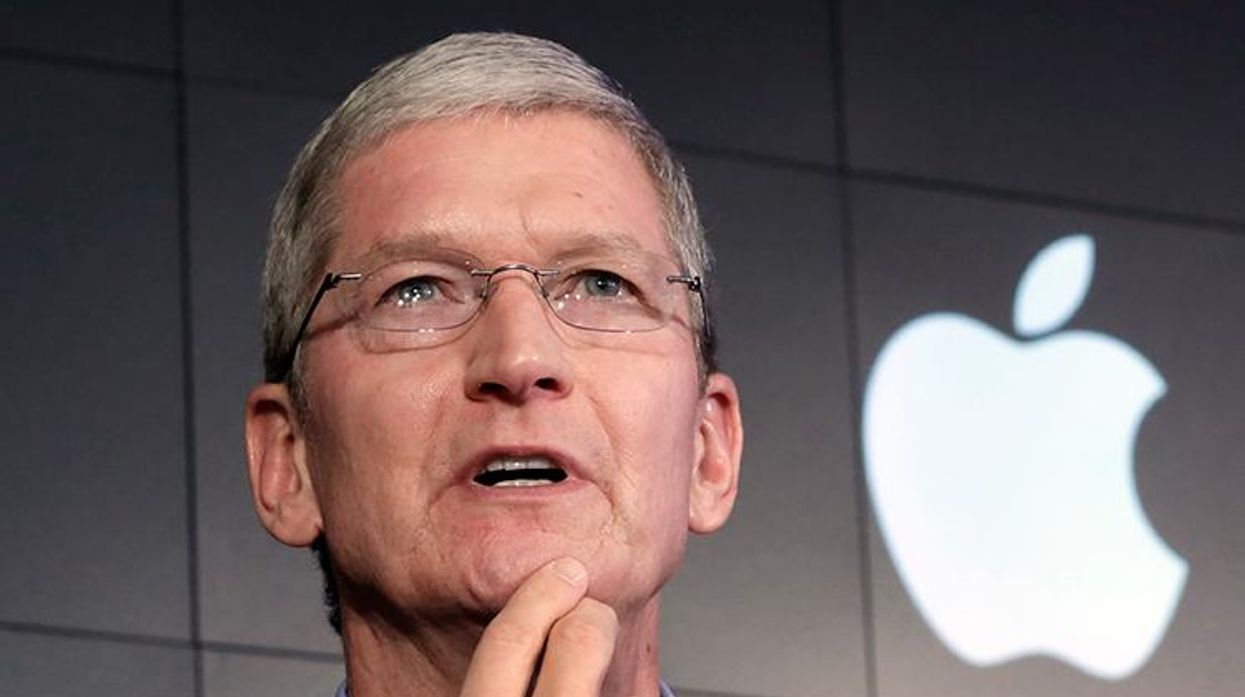
After paving the way for gay business leaders, the out CEO is taking a stand for Apple customers and against the invasion of privacy.
February 18 2016 7:30 AM EST
Lifeafterdawn
By continuing to use our site, you agree to our Privacy Policy and Terms of Use.

After paving the way for gay business leaders, the out CEO is taking a stand for Apple customers and against the invasion of privacy.
Out Apple CEO Tim Cook is winning kudos from corporate leaders, Apple devotees and privacy rights activists for his defiance of a court order to unlock one iPhone.
But it's not just any iPhone. It belonged to one of the terrorists who killed 14 people in San Bernardino, Calif., last year. Earlier this month, a federal judge ordered Apple to provide the FBI with access to information on that iPhone, which like all iPhones is encrypted.
The FBI contends the data could help investigators, but in a message to Apple customers, Cook wrote that if his company were to cooperate with the order, which is to create new software to hack that device, "Building a version of iOS that bypasses security in this way would undeniably create a backdoor. And while the government may argue that its use would be limited to this case, there is no way to guarantee such control." He continued:
"When the FBI has requested data that's in our possession, we have provided it. Apple complies with valid subpoenas and search warrants, as we have in the San Bernardino case. We have also made Apple engineers available to advise the FBI, and we've offered our best ideas on a number of investigative options at their disposal.
We have great respect for the professionals at the FBI, and we believe their intentions are good. Up to this point, we have done everything that is both within our power and within the law to help them. But now the U.S. government has asked us for something we simply do not have, and something we consider too dangerous to create. They have asked us to build a backdoor to the iPhone.
Specifically, the FBI wants us to make a new version of the iPhone operating system, circumventing several important security features, and install it on an iPhone recovered during the investigation. In the wrong hands, this software -- which does not exist today -- would have the potential to unlock any iPhone in someone's physical possession."
As the Los Angeles Times reports, Cook's refusal may well define his legacy even more than the work he's done since succeeding Apple cofounder Steve Jobs. And some observers believe the fight could go all the way to the U.S. Supreme Court.
Supporters of Cook range from Google's CEO to grassroots LGBT digital rights activists like Evan Greer of Fight for the Future, who organized demonstrations at Apple stores in San Francisco in support of the company's stand. More are planned Tuesday and are being organized via Facebook.
\u201cGrowing group of folks at the SF Apple Store. Showing support of Apple's decision to protect encryption for users.\u201d— DoctorPopular.RSS (@DoctorPopular.RSS) 1455757593
Geoff Colvin, writing in Fortune, hailed Cook for "showing courage and leadership:"
"Above all, it appears, Cook is trying to avoid a precedent that would encourage governments around the world to demand that Apple break into customers' phones. He also wants to avoid creating break-in code for the FBI that could conceivably fall into the hands of others.
"Those are all solid, sensible stances for Cook to take. And as Apple's lawyers fight back, they might win. The obvious danger is that if they don't, the resolution could be one that Cook really hates.
"So Cook's leadership decision here is that it's time to resolve this momentous issue one way or the other. The circumstances could make this an epic case. It pits the world's most valuable technology company, possessing what seems to be the strongest security measures, against the U.S. government over the investigation of a particularly famous and horrific crime."
Read Cook's defiant message to Apple customers here.
Charlie Kirk DID say stoning gay people was the 'perfect law' — and these other heinous quotes